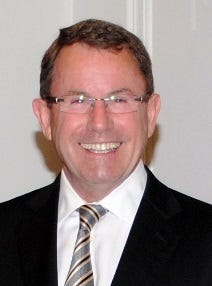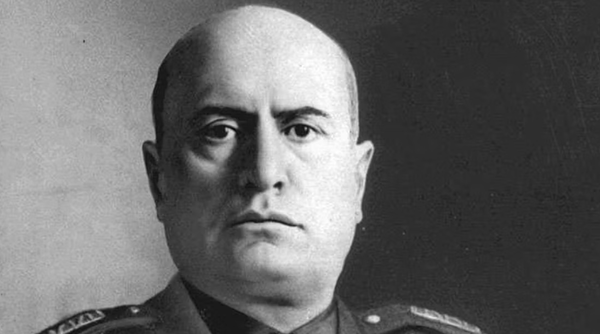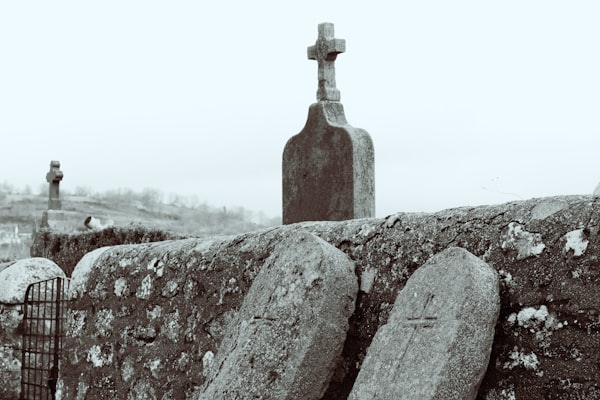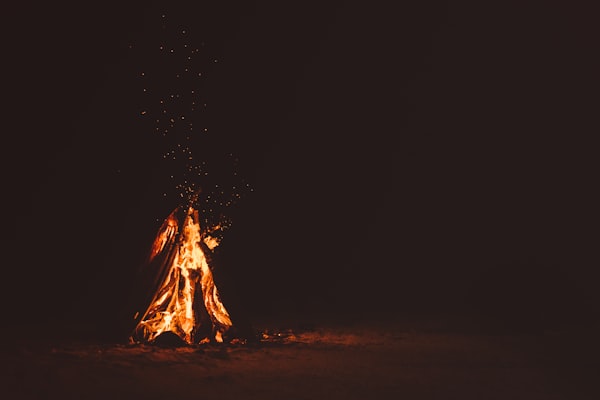Talkback radio's racism is a feature, not a bug
Maybe it's time we stopped putting up with it
People all over New Zealand are in shock at the news that someone said something racist on talkback radio.
The shock, of course, mainly comes from the fact that there have been actual consequences for saying something racist on talkback, which is a medium that exists more or less for the express purpose of fomenting listenership by either a) being racist or b) getting racists to call up and be racist on the air.

Of course, it’s not done to say the quiet part too loud, which Magic Talk host John Banks did when he let a racist caller ramble at length about how Māori were a “stone age people,” and then followed up with his own recurring racist fantasy about Māori people coming in through windows. (He has form: the ex-MP has been on the air since 1992, and in 1995 caused controversy by having then-MP John Carter call in and pretend to be a Māori man called “Hone.”)
Instead of being overt, talkback racism is meant to be expressed at a constant high-pitched whine, in the form of “debate.” Listeners to Magic Talk and other talkback radio stations have long enjoyed being able to tune in and hear the humanity and rights of various non-white races debated or denied at length. Sometimes, just to mix things up, there’s also climate change denial. Consequences vary, but most often take the form of a damp caress on the wrist by the Broadcasting Standards Authority, who are a Government-mandated manufacturer of wet bus tickets. Instances I can remember off the top of my head include:
That one time Heather du Plessis-Allan called the Pacific Islands “leeches” (Newstalk ZB, NZME, BSA complaint upheld.)
I mean, it's the Pacific Islands. What are we going to get out of them? They are nothing but leeches on us. I mean, the Pacific Islands want money from us. We don't need money from them
That one time in 2019 when Andrew Dickens asked a caller “How Māori are you?” (Newstalk ZB, NZME, BSA complaint denied)
How Māori are you? Because unfortunately we actually put a numerical value on it, whether you're you know, umm a half, a quarter, an eighth, a sixteenth, a thirty-second
That one time in 2020 when Sean Plunket, according to the BSA, “amplified racism, misinformed listeners, ridiculed Te Tiriti and was insulting to Te Whānau ā Apanui,” by being rancidly racist about Iwi roadblocks. (MagicTalk, MediaWorks, BSA complaint upheld)
“It’s all about separatism, folks. It’s all about that Treaty and that spirit of partnership and making up a whole lot of rules cause it makes you feel good. Weird.”
(This shebang was made considerably more awkward by the fact that Sean Plunket actually served on the BSA, for about five minutes, before quitting over a controversy where he tweeted about feeling pity for Harvey Weinstein. Also, Sean Plunket has been airing his concerns about iwi roadblocks again, which seem to be a perennial topic of interest for him! I wonder why?)
Anyway. I picked those incidents more or less at random. There are dozens more I can think of, and the only reason there aren’t many more is because these incidents are when people actually made BSA complaints. It’s like racist trees falling in forests: we usually only hear about it when someone takes the trouble to navigate the BSA’s unnecessarily byzantine complaints process.
Of course, the real problem isn’t just the presenters. It’s the system that perpetuates them. In talkback, horrible presenters with endlessly bad and often racist takes aren’t the exception, they’re the rule. They’re a feature, not a bug. They’re the point. In MediaWorks’ own words, in one of the BSA decisions that went against them:
Sean Plunket has a long history as a broadcaster and is well known for his often provocative and adversarial style of broadcasting. We also note that the BSA recognises talkback generally as an opinionated environment that it is given latitude to be provocative and edgy to provoke debate.
To which I say, lol, no, you disingenuous, sanctimonious polluters of the national discourse. It’s not about debate. It’s not about being ‘edgy’. Talkback stations exist to pander to their audiences (and occasionally wind up those who find prejudice offensive) not to challenge them. It’s about as edgy as a sphere. Actual edgy / provocative content, when it comes to the talkback audience, might look like:
- Suggesting that workers seize the means of production
- Encouraging the redistribution of the wealth taken by billionaires
- Implying that Māori have rights as tangata whenua
- Saying that building cycle lanes is good actually
- Admitting that climate change exists
So, while we can mostly all agree that racist presenters are terrible, the focus really needs to be on the organisations that give them a platform and encourage their racist behaviour. Their reasons for doing this aren’t necessarily that they’re run by closet racists; it’s just that “they’re just saying what everyone thinks!”-style racism is popular and easily monetised.
When it comes to NZME (owners of Newstalk ZB and the New Zealand Herald) and MediaWorks (owners of MagicTalk, former owners of Three) their radio divisions share a very rare trait in this media environment: they are actually profitable. Talkback has been bleeding into other media formats for ages, even as other media formats copy talkback’s successful mechanisms. This is why the talkback stable is so prominent in the other bits of the media that these companies own; it’s why Mike Hosking and Heather du du Plessis-Allan are in the Herald every twenty seconds, and why blowhard hosts like Duncan Garner have regular columns and guest spots in apparently every major media outlet in the country. They foment conflict, which becomes news, which creates blowback, which becomes news, and so on ad infinitum. I wrote about this problem back in 2019 and honestly it’s only gotten worse since then.
The good news is that the talkback stations’ cash-cow status actually makes the big media companies incredibly vulnerable to activism. If the public expects its Fourth Estate to consist of actual journalism and not racist buffoons, we can do something about it. Moreover, there’s no good reason why talkback radio has to be racist, sexist, conspiracist, or any other bad “ist.” It could be a well-moderated space where ordinary people get a chance to air their views. But to become that, it has to change, and change fast.
Vodafone, Spark and other organisations sensibly pulled their advertising from MagicTalk in the wake of the latest controversy, citing incompatibility with their values. They’re right. But I expect advertising will quietly resume at some point in the future once this particular controversy has blown over, at least until the next one comes along.
This shouldn’t be allowed to happen. Companies that take their values seriously should not be advertising on talkback, in its current form, at all. In fact, if they truly mean what they say, they should withdraw advertising from not just talkback but the parent companies. If Newstalk ZB is engaging in climate change denial, then yank advertising spend from all NZME properties, including the New Zealand Herald and One Roof. If MagicTalk is racist, then pull your ads off Mediaworks, including QMS billboards and The Edge. The parent company is setting the agenda for their media properties, and they should bear the ultimate responsibility for the content that airs on their networks. They’re not discrete entities. The Herald, to all intents and purposes, is Newstalk ZB.
So, if you’re mad as hell and aren’t going to take it anymore, by all means, complain to the toothless BSA when someone says something terrible, and wait for the broadcaster to either be let off the hook or be hit with a paltry $3000 fine, but you’ll do much better complaining to the advertisers. Broadcasters don’t really care about BSA rulings or fines. In fact, they often welcome them. It means their audience is engaged and, as the controversy breaks into other media, it guarantees them more attention. But if their source of revenue starts leaving, they freak out - and their revenue sources will leave, if encouraged to, because most of the big corporations who advertise on radio are risk-averse and hate being attached to controversy. I genuinely believe it’s the only way for these media organisations to change.
I’m not the only one thinking along these lines, of course, and because I’m a slow writer with a day job and a new baby, a bunch of people have beaten me to the punch. Duncan Grieve at the Spinoff has a sharp analysis that comes to pretty similar conclusions to this piece, and David Farrier goes into great, angry detail about past instances of racism on talkback. There seems to be consensus building that it’s time talkback admitted its role in fomenting racism, and ditched the divisive model.
What could come next? How about: a crowdsourced list of advertisers on talkback stations? People who volunteer to listen to and record the stations to catch every terrible thing they say, who post the proof on social media, and who complain to the advertisers?* How’s that for edgy, MagicTalk?
Or, the media bosses could themselves save money and trouble, finally call time on racism, and install hosts who aren’t massive dickheads. They could tell these hosts to stop giving a platform to racist grifters and cut off callers who spout racist nonsense.
I’m thinking the first course of action is more likely, mainly because MediaWorks’ CEO’s response to the latest instance of rampant racism in the organisation he runs is, absurdly, to deny that there is any:
Cam Wallace, CEO of Mediaworks, finds no evidence of racism at Magic Radio. Here you go Cam.
— Luke Fitzmaurice (@FitzmauriceLuke) 10:38 PM ∙ Jan 27, 2021
Clearly, something needs to change. When it comes to mass media, New Zealand doesn’t just deserve better: we desperately need it. I’m keen to hear ideas, so feel free to kick off in the comments, or on Twitter, or wherever. Let’s actually have the provocative, robust debate talkback loves to pretend it has, without being racist loons. Can’t be that hard, right?




